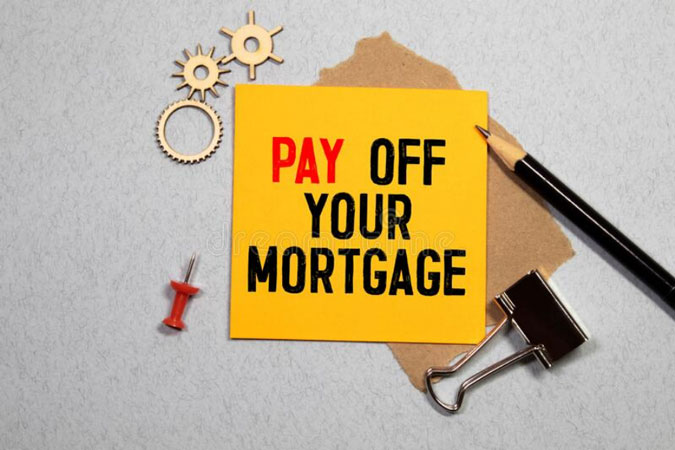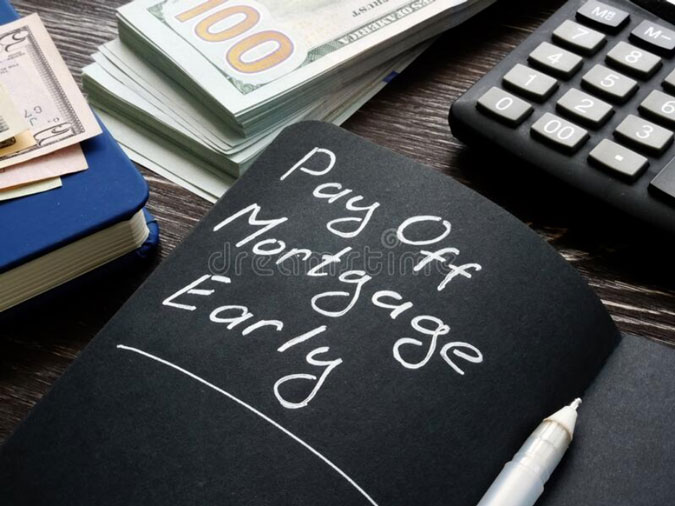Do You Know: How to Pay Off Your Mortgage Early?
Nov 29, 2023 By Susan Kelly
Introduction
So, you want to become one of the roughly 40% of American homeowners who have paid off their mortgage completely. Wow, that's hard to conceive about. There's a noticeable difference in the texture of the grass when you step onto it when the bank no longer has title to your home. To be free in such a way. The money you would have spent on a mortgage each month can be put toward a more secure financial future. But right now, like most homeowners, you're tied down by the weight of a mortgage. When may you stop making mortgage payments? Try not to fret. We'll explain how to make your mortgage payments less and more manageable so you may join the ranks of mortgage-free homeowners. Yes, let's launch into action.
How to Pay Off Your Mortgage Early?
In addition to giving you peace of mind, paying off your mortgage early can help you save money on interest payments throughout the life of your loan. To reduce the length of your mortgage loan, consider the following strategies:

1. Refinance Your Mortgage
The interest you pay on your mortgage can be lowered through refinancing if interest rates fall. Moreover, you can considerably shorten the duration of your loan.
2. Make Extra Mortgage Payments
Making extra payments on your mortgage is another strategy for lowering your total interest costs and shortening the life of your loan. To avoid receiving a prepayment penalty from your lender, you can use one of the following methods to pay off your mortgage early. Don't forget to let your lender know that the additional funds should be applied to the principal of your loan rather than the accruing interest.
Otherwise, your lender may credit the payments toward your upcoming monthly payment, negating any savings you might have reaped. You should also make extra payments early in the loan's term when interest rates are often lower. The bulk of your initial monthly payment will go toward interest rather than principal for the first few years of your loan. And because interest is compounded, the total amount owed is used to calculate the interest for each month (principal plus interest).
3. Make One Extra Mortgage Payment Each Year
Extra mortgage payments made annually can considerably cut the duration of a loan. Paying 1/12 more per month is the most cost-effective method of doing this. If your monthly mortgage is $900, paying $975 instead will be like making an extra payment by the end of the year.
4. Bring Your Lunch to Work
Bringing a peanut butter and jelly sandwich to work every day may not be as exciting as taking the team out for lunch once a week. In contrast, ditching your daily lunch outing in favor of a home-cooked meal can help you lose weight and pay off your mortgage faster. Let's say that you can put an extra $100 per month toward your mortgage by bringing your lunch to work instead of buying it. Using the $220,000 loan example from before, the $100 you save by skipping lunch will help you pay off your mortgage four years early and save you over $27,000 in interest.
Can't quite afford to take $100 out of your grocery budget. Not to worry. You may pay off your mortgage faster by making even minor concessions. Andrew Jackson will start working for you if you add $20 to your monthly mortgage payment. If you follow our example, you'll be able to pay off your mortgage a year early and save more than $6,000.
Should I Pay Off My Mortgage?
You shouldn't assume that because you can, you should pay off your mortgage early. To be free of a large debt, such as a mortgage, must feel fantastic. A glance at the numbers is necessary if you want to know whether or not this is a wise choice. The decision to prepay a mortgage comes with both benefits and drawbacks. Whether the benefits outweigh the costs is something you'll have to assess individually.
Benefits of Paying Off Your Mortgage Early
Save Money on Interest
If you can shorten the duration of your mortgage, you can save money on interest throughout the loan. The amount you save on your mortgage by paying it off early will depend on the loan's principal amount, interest rate, and original term.
Free Up Money for Later in Life
Usually, a mortgage term will be between 15 and 30 years. That's a rather long time frame to be responsible for loan repayment. You may save money for fun activities like travel and other experiences as you become older by paying off your mortgage early.
Increase Home Equity
Refinancing, a home equity loan or a cash-out HELOC can access the equity you've built in your house by paying off your mortgage.

Conclusion
The fastest approach to paying off a mortgage is to make payments toward both the principal and interest. Most mortgages are interest-only or principal-and-interest loans. This indicates that the interest and principal for the loan period are both being paid back through loan repayments. When you take out an interest-only loan, you don't have to worry about repaying the loan's principal balance for a while. Short-term loans have a specific repayment schedule (for example, five years).
-
 Know-how Feb 17, 2024
Know-how Feb 17, 2024What Is Disability Insurance?
In 2019, nearly 10 million persons were eligible for disability payments from Social Security. Are you financially ready to meet your living costs if you cannot work due to an illness or accident that is not job-related? You certainly hope you will never have to find the answer to this question.
-
 Know-how Nov 23, 2023
Know-how Nov 23, 2023Modifying Interest Rates: The Role of Central Banks
The Federal Reserve is responsible for monetary and exchange rate stability. The Federal Reserve has options to tailor its monetary policy to the government's fiscal strategy. Encourage economic and employment growth by adjusting the discount rate, disseminating information and data, and managing and governing the nation's currency.
-
 Banking Feb 25, 2024
Banking Feb 25, 2024Debt Snowball Vs Debt Avalanche: An Overview
The debt snowball vs avalanche techniques are two of the most common and effective ways to pay off your debt.
-
 Mortgages Feb 08, 2024
Mortgages Feb 08, 2024All You Need To Know About Pros And Cons Of Debt Management And How It Affects Your Financial Situation
Using a debt management plan to decrease the effects of interest rates on your credit cards and as a means to reduce the payments you make in a month. There are companies working for this purpose specifically. They devise a debt management plan for you after understanding your financial situation to help you get rid of your unsecured debt. To quote a few examples, we can consider medical debts, debts due to interest rates of credit cards, or more general type, consumer debts are considered under this category.
